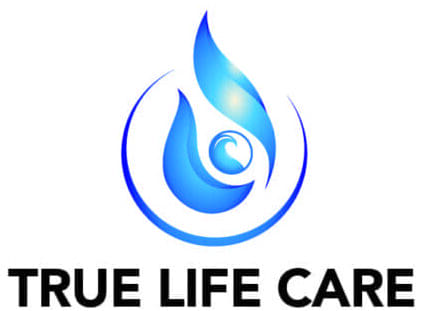What to Know About Depression in Young Adults Treatment Options
Finding depression in young adults treatment options is essential to help with symptoms. Through early treatment, young adults can effectively heal. Please contact our admission office for more informations about our depression in young adults treatment in New Jersey.

What Are the Treatment Approaches for Depression in Young Adults?
Depression is a mental health condition that requires appropriate treatment. Depression in young adults treatment options involve a combination of therapy, medication, and support systems. Evidence-based therapeutic modalities can address the underlying causes and symptoms of depression.
These therapies help patients develop coping skills. They can challenge negative thought patterns and improve their interpersonal relationships.
The treatment approaches for depression in young adults vary. Here are some common treatment approaches:
Psychotherapy
Psychotherapy is often the first-line treatment for depression. This includes cognitive-behavioral therapy (CBT), interpersonal therapy (IPT), and dialectical behavior therapy (DBT).
These therapies help patients identify and change negative thought patterns. Patients can also develop coping skills, improve relationships, and set realistic goals.1
Medication
Antidepressant medications can be prescribed for depression in young adults treatment options. They include selective serotonin reuptake inhibitors (SSRIs) or serotonin-norepinephrine reuptake inhibitors (SNRIs). These medications can help regulate brain chemicals involved in mood regulation.
Lifestyle Changes
Certain lifestyle modifications can complement the treatment of depression. These include regular exercise, which can boost mood and increase endorphin levels. You can also practice stress reduction techniques. These techniques can include mindfulness meditation or deep breathing exercises.
Support Networks
Building a support network is vital for depression in young adults treatment options. This may involve seeking support from friends, family, or support groups. Encouraging open communication about depression can help create a supportive environment.
Self-Care
Engaging in activities that bring joy and fulfillment is crucial for managing depression. Encouraging self-care practices can help improve mood in the long run. This can include engaging in hobbies and maintaining social connections.
Sleep Management
Sleep problems are common for those with depression. Practicing good sleep hygiene and addressing sleep disorders can improve symptoms of depression. This involves avoiding screens before bed and creating a relaxing bedtime routine.
The Challenges in Treating Depression in Young Adults Compared to Other Age Groups
Depression in young adults treatment options may present unique challenges compared to other age groups. Here are some of the challenges specific to this population:
Identification and Diagnosis
Depression in young adults is often overlooked. It is also misattributed to normal mood fluctuations of young adults or adolescents. Symptoms of depression may be mistaken for regular hormonal changes or stress. This can delay diagnosis and appropriate treatment.
Stigma and Reluctance to Seek Help
Note that young adults may face stigma surrounding mental health issues. This may make them reluctant to seek help and treatment. They may fear judgment, societal pressure, or the impact on their aspirations. This reluctance can result in delayed intervention and worsening of symptoms.
Co-Occurring Issues
Young adults with depression may experience co-occurring issues. This can include substance use disorders, eating disorders, or self-harm behaviors.
Treating depression alongside these challenges requires a comprehensive and integrated approach. Many depression in young adults treatment options provide co-occurring treatment help.
Transitions and Life Changes
Young adulthood is a period of significant transitions. This includes moving away from home, starting university, and entering the workforce.
These transitions can contribute to stress, uncertainty, and increased vulnerability to depression. Physicians need to consider such transitions and provide support during these periods.
Developmental Considerations
Young adulthood is a critical period for identity formation and navigating relationships. Depression can disrupt these developmental processes and impact social functioning and future planning.
Physicians should consider these developmental considerations when creating a treatment plan. They should also address identity, self-worth, and interpersonal relationships.
Technology and Social Media Influence
Young adults are often influenced by social media, which can impact mental health. Constant exposure to social media comparisons and cyberbullying can contribute to depressive symptoms.
Treatment plans should address the influence of technology. It should also help patients develop healthy digital habits and coping strategies.
Treatment Adherence
Young adults may struggle with treatment adherence due to financial limitations. Additionally, treatment can be challenging due to academic, work, or social commitments. Treatment plans need to be flexible and accommodate these practical challenges.
Addressing these challenges requires a multidimensional approach. This approach must incorporate understanding and sensitivity to young adults’ unique needs.
Cultivating awareness, promoting early intervention, and accessing treatment is vital. This can help individuals find depression in young adults treatment options.
What Role Does Therapy Play in Depression in Young Adults Treatment Options?
Therapy plays a crucial role in the treatment of depression in young adults. Here are some critical roles therapy plays:
Providing Emotional Support
Therapy offers a safe and supportive environment. This allows young adults to express their thoughts, feelings, and concerns without judgment.
It also provides a space for patients to process their emotions related to depression. They can explore their experiences and receive empathy from a trained professional.
Identifying and Changing Negative Thought Patterns
Therapy helps young adults identify and challenge negative thoughts contributing to depression. It also helps patients replace distorted thinking and negative self-talk with positive thoughts.
Developing Coping Skills
Therapy equips young adults with practical coping skills to manage depressive symptoms. It teaches practical techniques for stress reduction, emotion regulation, problem-solving, and assertive communication.
These skills empower individuals to cope with stressors and setbacks more effectively. Learning coping skills is imperative for many depression in young adults treatment options.
Exploring Underlying Issues
Therapy allows young adults to explore underlying issues contributing to their depression. This includes past trauma, unresolved conflicts, or relationship difficulties. Patients gain insight, heal emotional wounds, and promote personal growth by addressing them.
Enhancing Self-Esteem and Self-Worth
Depression often erodes self-esteem and self-worth. Depression in young adults treatment options can help individuals develop a more positive self-concept and challenge negative self-perceptions. It also encourages them to identify their strengths and values.
Improving Relationships and Social Skills
Therapy focuses on improving relationships and social interactions. It helps young adults develop better communication skills, assertiveness, and conflict-resolution strategies. Strengthening social connections and interpersonal functioning can be pivotal in alleviating depressive symptoms.
Preventing Relapse
Therapy can help young adults learn skills to manage future depressive episodes. It teaches mindfulness techniques to identify warning signs and interrupt negative thought spirals. Patients can then put in place self-care practices to maintain mental well-being.
Providing Psychoeducation
Therapy provides valuable psychoeducation about depression, its causes, and treatment options. Young adults can better understand their condition and normalize their experiences. They can also learn self-help strategies to support their mental health.
Therapy offers a collaborative and individualized approach for depression in young adults treatment.
What Are the Evidence-Based Therapeutic Modalities for Depression in Young Adults Treatment?
Several evidence-based therapeutic modalities are suitable for treating depression in young adults.
Cognitive-Behavioral Therapy (CBT)
Interpersonal Therapy (IPT)
IPT is a time-limited therapy that concentrates on interpersonal relationships and social functioning. It helps young adults address specific interpersonal problems that contribute to their depression. IPT aims to improve communication skills, resolve conflicts, and alleviate depressive symptoms.
Mindfulness-Based Cognitive Therapy (MBCT)
MBCT combines elements of CBT with mindfulness practices. It helps patients develop mindfulness skills to cultivate non-judgmental awareness of their emotions.
MBCT has shown effectiveness in preventing relapse and reducing depressive symptoms. It does this by interrupting negative thought patterns and increasing self-compassion.
Dialectical Behavior Therapy (DBT)
DBT is a comprehensive therapy initially developed for individuals with borderline personality disorder. However, this treatment is also suitable for depression.
It combines therapy and skills training to address emotional dysregulation and self-destructive behaviors. DBT helps young adults develop mindfulness, emotion regulation, and distress tolerance.3
Acceptance and Commitment Therapy (ACT)
ACT focuses on accepting distressing thoughts and emotions rather than controlling them. ACT has shown promise in treating depression and promoting psychological flexibility.
Behavioral Activation (BA)
BA is a component of various therapeutic modalities, including CBT. It emphasizes increasing engagement in positive and rewarding activities to counteract depressive symptoms. BA helps young adults identify activities that provide pleasure and connection.
These therapeutic modalities have demonstrated efficacy in depression in young adults treatment options. Note that the specific modality chosen depends on various factors. This includes the patient’s preferences, treatment goals, and the therapist’s expertise.
The Medications for Young Adults with Depression and Potential Side Effects
A qualified healthcare professional will consider various factors before prescribing medications. This includes the severity of symptoms, medical history, and response to previous treatments. Here are some prescribed medications for depression in young adults:
Selective Serotonin Reuptake Inhibitors (SSRIs)
SSRIs such as fluoxetine, sertraline, and escitalopram are often the first-line medication for depression. They increase the availability of serotonin in the brain, which helps regulate mood. SSRIs are effective and are generally well-tolerated in young adults.4
Common side effects may include nausea, insomnia, sexual dysfunction, and gastrointestinal issues. Rarely, it can cause agitation, increased anxiety, or suicidal thoughts.
Serotonin-Norepinephrine Reuptake Inhibitors (SNRIs)
SNRIs such as venlafaxine and duloxetine are another class of antidepressant medications. They work by increasing the levels of serotonin and norepinephrine. This drug is suitable when SSRIs are not effective or well-tolerated.
Bupropion (Wellbutrin)
Bupropion works by increasing the levels of dopamine and norepinephrine in the brain. It is beneficial for young adults experiencing depression with symptoms of low energy. Bupropion is for those who want to avoid the potential side effects of SSRIs.
Common side effects may include dry mouth, insomnia, headache, nausea, and increased heart rate.
How Important Is a Multidisciplinary Approach in Depression in Young Adults Treatment?
A multidisciplinary approach is fundamental in the treatment of depression in young adults. Depression is a complex condition that affects various aspects of an individual’s life. Treatment often involves many physicians from different disciplines to ensure a comprehensive approach.
Here are some of the most common healthcare professionals involved in treatment:
Psychiatrist
Psychiatrists are medical doctors specializing in mental health. They play a central role in the diagnosis and treatment planning for depression. They assess the need for medication interventions and track medication efficacy and side effects.
Psychologist
Psychologists can offer evidence-based therapies tailored to the specific needs of patients. Psychologists help individuals develop coping skills, address underlying issues, and support emotional well-being.
Primary Care Physician (PCP)
PCPs often serve as the initial point of contact for those seeking help for depression. They can provide initial assessments, offer guidance, and make referrals. PCPs may also manage general health concerns and address comorbid medical conditions.
Social Worker
Social workers specialize in providing support for individuals with mental health needs. They assist young adults with depression in accessing community resources and navigating insurance.
Occupational Therapist
They focus on helping individuals engage in meaningful activities and enhance daily functioning. They can also promote time management and productivity through occupation-based interventions.
Registered Dietitian
Nutrition plays a significant role in mental health. A registered dietitian can guide nutrition and dietary strategies that support mental well-being. They help young adults with depression optimize their diet and manage nutritional deficiencies.
Counselor or Therapist
Licensed professional counselors or clinical social workers can provide therapy and counseling services. They may specialize in specific approaches or modalities that complement the treatment plan.
Nurse Practitioner or Physician Assistant
They work with psychiatrists to manage medication and track the patient’s progress. They may also offer support and answer questions related to medication.
Alternative Options For Young Adults With Depression Treatment
Besides traditional approaches, alternative treatment options exist for young adults with depression.
Here are some alternative treatment options:
Yoga
Yoga can be a helpful complementary practice for managing depression. It promotes relaxation, reduces stress, and improves well-being. While yoga alone may not be a substitute for professional treatment, it can be used to support mental health.
Art Therapy
Art therapy involves creative activities, such as painting or sculpting, to express emotions. It can provide a non-verbal outlet for self-expression and emotional exploration. This allows patients to gain insights and relief from depressive symptoms.
Music Therapy
Music therapy involves using music to address emotional, cognitive, and social needs. Listening to music or participating in group music therapy sessions has various benefits. It can promote emotional expression, relaxation, and connection with others, alleviating depressive symptoms.5
Meditation
Meditation is a valuable practice for treating depression. Regular meditation can help cultivate a sense of inner calm and increase self-awareness. Remember, consistency is key when practicing meditation. Start with short sessions of 5-10 minutes and increase the duration as you become more comfortable.
Alternative treatments should not replace evidence-based therapies or medical interventions. They can be considered adjunctive or complementary.

Does True Life Care Offer Depression in Young Adults Treatment?
True Life Care offers a comprehensive range of services aimed at treating depression in both adults and young adults.
True Life Care provides inpatient and outpatient programs. These programs offer support in a structured environment. This ensures close monitoring and a break from risk factors in the outside world in order to promote holistic healing.
How We Can Help
Meeting with our skilled and compassionate team can help you or your loved one get the treatment you need. We offer many options in terms of depression in young adults treatment. We will work with you to create a personalized treatment plan for your needs or various symptoms.
Get In Touch With Us Today
Depression is a treatable condition, and seeking help is a sign of strength. With True Life Care, you can experience relief from your symptoms. You can also regain control over your lives and work towards long-term recovery. Reach out to us today about our depression in young adults treatment in New Jersey.
Resources
- https://www.ncbi.nlm.nih.gov/pmc/articles/PMC6875158/
- https://www.ncbi.nlm.nih.gov/pmc/articles/PMC7001356/#:~:text=EVIDENCE%20BASE%20FOR%20COGNITIVE%20BEHAVIORAL,disorder%2C%20and%20substance%20use%20disorder.https://www.ncbi.nlm.nih.gov/pmc/articles/PMC7001356/#:~:text=EVIDENCE%20BASE%20FOR%20COGNITIVE%20BEHAVIORAL,disorder%2C%20and%20substance%20use%20disorder.
- https://pubmed.ncbi.nlm.nih.gov/32043894/
- https://www.nhs.uk/mental-health/talking-therapies-medicine-treatments/medicines-and-psychiatry/ssri-antidepressants/overview/#:~:text=Selective%20serotonin%20reuptake%20inhibitors%20(SSRIs)%20are%20a%20widely%20used%20type,cognitive%20behavioural%20therapy%20(CBT).
- https://www.ncbi.nlm.nih.gov/pmc/articles/PMC4369551/



